I’ll tell you what you can do with your review, buddy
 Alain de Botton, sardonic author of How Proust Can Change Your Life and, more recently, The Pleasures and Sorrows of Work, positively flipped his shit when the NYT Book Review made some unglowing remarks about his latest book. The line “I will hate you until the day I die” was used. Take that, brainless critic! We need more hate in publishing, far as I’m concerned. Who wants to take a Louisville Slugger to James Frey? Anyone?
Alain de Botton, sardonic author of How Proust Can Change Your Life and, more recently, The Pleasures and Sorrows of Work, positively flipped his shit when the NYT Book Review made some unglowing remarks about his latest book. The line “I will hate you until the day I die” was used. Take that, brainless critic! We need more hate in publishing, far as I’m concerned. Who wants to take a Louisville Slugger to James Frey? Anyone?
Going away for a bit tomorrow. Bringing Sir Arthur Conan Doyle’s Lost World, James Hamilton-Patterson’s Seven-Tenths and A High Wind in Jamaica by Richard Hughes. Anyone else have any warm weather book suggestions?
Lowbrow Reader post #2
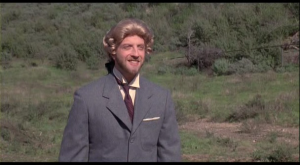 The other day, I posted some junk on the long-lost Gilbert Rogin from the latest installment of the the Lowbrow Reader. Today, I will share a brief email correspondence with the equally reclusive editor of that journal, Jay Ruttenberg.
The other day, I posted some junk on the long-lost Gilbert Rogin from the latest installment of the the Lowbrow Reader. Today, I will share a brief email correspondence with the equally reclusive editor of that journal, Jay Ruttenberg.
Good day sir. Would you mind talking a bit about the genesis of the Lowbrow Reader? Did you always know that it would become the phenomenon it has?
We started the Lowbrow Reader in the fall of 2000 and published the first issue the following year. At the time, the smart people of the world were all conceiving online things, so what did I do? Started a print publication. The original concept was to mix comedy and commentary about comedy—specifically the kind of “lowbrow” fare that so often gets condemned by traditional media. I’m a big Adam Sandler fan, and could never understand how “Billy Madison”—which I consider to be a masterpiece—would be reviled by critics. In some weird way, it seemed akin to elements of the mainstream ’60s press treating the Beatles or Bob Dylan as some kind of passing teen fad.
Did I always know it would become the phenomenon it has? Our publication is blessed with eight readers. When we launched, never in my wildest dreams did I think we would surpass five. I guess some people just have a special gift.
Read the rest of this offensive tete-a-tete after these messages.
Lowbrow Reader #7: Gilbert Rogin
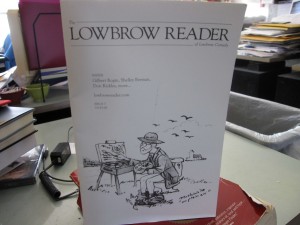
Did you know that the imense bones of Orestes, the discovery of which Herodotus relates, are now believed to be those of a prehistoric monster? Of course, the inference is not that Orestes had undergone a metamorphosis in his lifetime, one that was revealed from an examination of his remains; it is rather that the prevalent cult of heroic relics required outsized bones, and conveniently, those of great, lumbering Pleistocene beasts popped up from time to time. More persuasively, it was the other way round, as it often is, the uncovering of the bones leading to the formation of the cult.
But suppose the bones were Orestes’, that he became aware that he was in the grip of a terrible transformation, and that he was unhinged. Could that explain everything that followed? Something to think about early in the morning when your dad’s ghostly, fluent fingers seem to be accompanying the rain.
Who is Gilbert Rogin, exactly? His books are out of print, but he has had 33 stories published in the New Yorker over the years, was once complimented by Joyce Carol Oates in the Partisan Review, likened (in print) to Bruno Schulz by Updike and for years was managing editor of Sports Illustrated.
What?
Later this week I will ask LR editor Jay Ruttenberg how he rediscovered this crotchety literary gem, met up with him and then got Rogin to write in his modest publication. It’s a funny story.
Get your copy of the new Lowbrow Reader here.
Other cities
 If Blake likes a book, you can be relatively sure that it will be decent or, at the very least, cause some sweet internal hemorrhaging. Awhile ago I read with interest something that he posted about this Dalkey book just recently translated into English, The Other City, by Michal Ajvaz. Being a masochist, I eventually picked it up and, with its weird transdimensional runes and strange otherworldly trolleys, hasn’t disappointed. The Prague Ajvaz describes isn’t one you’d recognize from a Fodor’s travel guide, but is definitely truer for all that, I think. I say this having never been to Prague, but it just feels right. Laird Hunt (whose new book Ray of the Star is coming out in September some time), touches on this idea in his last novel, The Exquisite. He writes:
If Blake likes a book, you can be relatively sure that it will be decent or, at the very least, cause some sweet internal hemorrhaging. Awhile ago I read with interest something that he posted about this Dalkey book just recently translated into English, The Other City, by Michal Ajvaz. Being a masochist, I eventually picked it up and, with its weird transdimensional runes and strange otherworldly trolleys, hasn’t disappointed. The Prague Ajvaz describes isn’t one you’d recognize from a Fodor’s travel guide, but is definitely truer for all that, I think. I say this having never been to Prague, but it just feels right. Laird Hunt (whose new book Ray of the Star is coming out in September some time), touches on this idea in his last novel, The Exquisite. He writes:
There are two New Yorks. One of them is the one you go out into every day and every day it smacks you in the face and maybe you laugh a little and the people walk down the street and trucks blow their horns and you are happy or you are not, but your heart is beating. Your heart is beating as you walk, say, through a steady drizzle, your beat-up umbrella bumping other beat-up umbrellas, muttering excuse me, skirting small, dirty puddles and drifts of dark sediment, stepping out of the way of the young woman or young man on a cell phone who didn’t see you coming, didn’t notice you had stepped out of the way, didn’t give a shit, didn’t hear you say, because of this, fuck you, saying fuck you with your heart beating faster, feeling pretty good about saying fuck you, suddenly maybe feeling good about the drizzle, about the brilliant beads of water on the cabs going too fast down Prince, on the delicate ends of the oak branches as you cross Elizabeth, on the chain-link mesh as you move across the street…Down dark, windswept hallways, across empty public spaces, past vanished water-tasting stations and stopped-up springs, along oily waterways littered with rusting barges and sleeping gulls, down abandoned subway tunnels and the sparking guts of disused power stations: into the second New York. The one in which a heartbeat is at best a temporary anomaly, a troubling aftershock, an instance of unanswerable deja vu. Which is much bigger than the first, and is for the most part, in your current condition, inaccessible to you, you think, although sometimes, like sitting in the bar drifting, or lying on your bed surrounded by lights and strangers, you can catch a glimpse.
I’ve always love that idea of the city as this living, heavily breathing entity, existing totally independently of its human parasites. And, being substantially more familiar with New York than Prague, I can say that Hunt is dead on with his description of the city’s schizophrenia. Or secret identity. Whatever. Which leads me to believe that Ajvaz is too, and makes me want to take advantage of affordable plane tickets to Europe to check out this eerie city of his.
The Onion has still got it
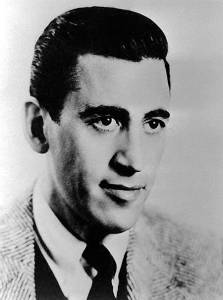
Although the sole film made from Salinger’s work, My Foolish Heart, based on his short story “Uncle Wiggily In Connecticut,” was considered by Salinger to be such a bastardization of his prose that he never agreed to another adaptation, he now states that “if McG wants to do any of my stuff—’A Perfect Day For Bananafish’; Raise High The Roof Beam, Carpenters; hell, all of Nine Stories—he has my complete permission. Anything. Anything he wants.”
Read it all here, and deal with how comparatively unfunny we truly are.
Birthday buddies
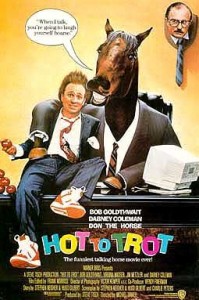 I was just checking the first part of a forthcoming graphic biography of Trotsky titled, I guess, Trotsky. It’s by Rick Geary and comes out, of course, in October. I was just reading about the anniversary of Tiananmen in the news, and am also making my way through this sprawling and accessible history by Archie Brown called The Rise and Fall of Communism—so a Trotsky comic book seems to fit right in with my reading arc at the moment. I’m hoping for something along the lines of Chester Brown’s awwweeesssommme Louis Riel, but I doubt anything can touch that, at least in terms of graphic bios. Before terrorism there was communism. Think about it.
I was just checking the first part of a forthcoming graphic biography of Trotsky titled, I guess, Trotsky. It’s by Rick Geary and comes out, of course, in October. I was just reading about the anniversary of Tiananmen in the news, and am also making my way through this sprawling and accessible history by Archie Brown called The Rise and Fall of Communism—so a Trotsky comic book seems to fit right in with my reading arc at the moment. I’m hoping for something along the lines of Chester Brown’s awwweeesssommme Louis Riel, but I doubt anything can touch that, at least in terms of graphic bios. Before terrorism there was communism. Think about it.
New bookstore in Fort Greene

Greenlight Bookstore. Deal with it. Well, except for you, Jimmy Chen. You don’t have to deal with this at all. What’s the first book you’ll buy there, Brooklyn people?

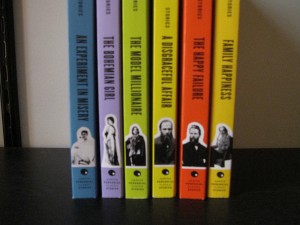 I’m currently sitting on my parents couch in an undisclosed location in South Jersey. It’s 7am on Saturday, and I’m awake because my folks are both teachers and wake up, even on their days off and summer vacations, at painfully early hours. Since, when I come to their house, I opt to sleep on the couch in front of their flat screen TV and soak in the cable I don’t have in New York, they usually wake me up too. It’s worth it, I think, although I’m still a bit groggy. Now I don’t have to move much in order to turn on cartoons or Rocky IV, which I think I saw On Demand. But this place of rest also gives me a chance to continue reading a
I’m currently sitting on my parents couch in an undisclosed location in South Jersey. It’s 7am on Saturday, and I’m awake because my folks are both teachers and wake up, even on their days off and summer vacations, at painfully early hours. Since, when I come to their house, I opt to sleep on the couch in front of their flat screen TV and soak in the cable I don’t have in New York, they usually wake me up too. It’s worth it, I think, although I’m still a bit groggy. Now I don’t have to move much in order to turn on cartoons or Rocky IV, which I think I saw On Demand. But this place of rest also gives me a chance to continue reading a